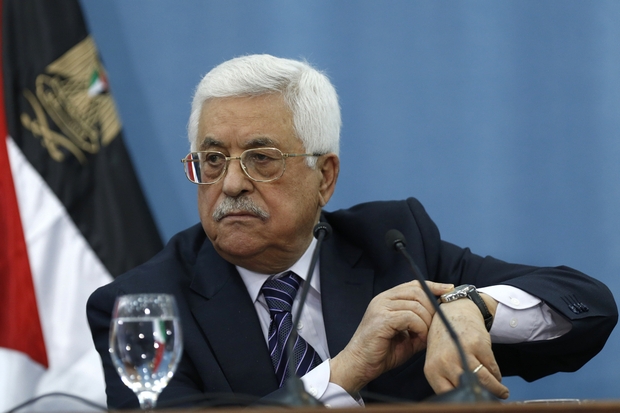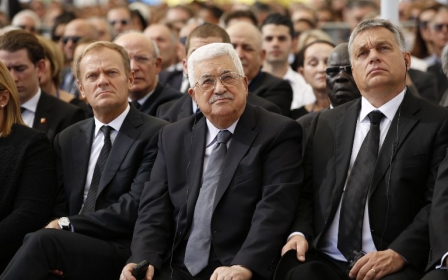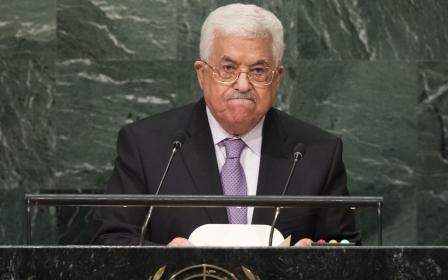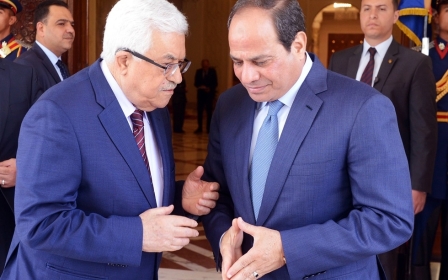Palestinian chief Abbas holds rare meeting with Hamas leaders in Doha

Palestinian President Mahmoud Abbas held a rare meeting with Hamas leaders Khalid Mashal and Ismail Haniyeh in Doha on Thursday.
The trio emphasised reconciliation and the importance of dialogue between Fatah and Hamas to achieve unity, establish a consensus government and organise elections, PA official news agency, Wafa, reported.
The meeting took place at a business lunch hosted by Qatari Foreign Minister Khalid bin Mohammad al-Attiyah
The news agency added that the sides agreed to protect the “Palestinian national project” from Israeli attempts to destroy the two-state solution.
“They reaffirmed that there is no Palestinian state in Gaza, and no Palestinian state without Gaza,” according to Wafa’s account.
Translation: President Mahmoud Abbas (Abu Mazen) during a meeting with Khalid Mashal and Ismail Haniyeh today in Doha. Reconciliation must be achieved. Photo by Thaer Ghanayem
Gaza has been controlled by Hamas since 2006, after the group won the Palestinian legislative elections.
Relations between Fatah and Hamas soured after clashes and failure to form a unity government in the aftermath of the elections.
Repeated attempts at reconciliation, led by Cairo, Doha and Ankara have failed.
The rare meeting between the leaders of the rival factions comes at a time when peace negotiations between Israel and the Palestinians are at a standstill.
Abbas was at the receiving end of much criticism last month for attending the funeral of former Israeli prime minister Shimon Peres.
A Hamas spokesperson said a letter of condolence sent by Abbas to Peres's family “shows contempt for the blood of martyrs and the suffering of the Palestinian people”.
Abbas also faces internal opposition within Fatah from followers of Mohammed Dahlan, a former security chief who is now in self-imposed exile in the United Arab Emirates.
Middle East Eye propose une couverture et une analyse indépendantes et incomparables du Moyen-Orient, de l’Afrique du Nord et d’autres régions du monde. Pour en savoir plus sur la reprise de ce contenu et les frais qui s’appliquent, veuillez remplir ce formulaire [en anglais]. Pour en savoir plus sur MEE, cliquez ici [en anglais].




